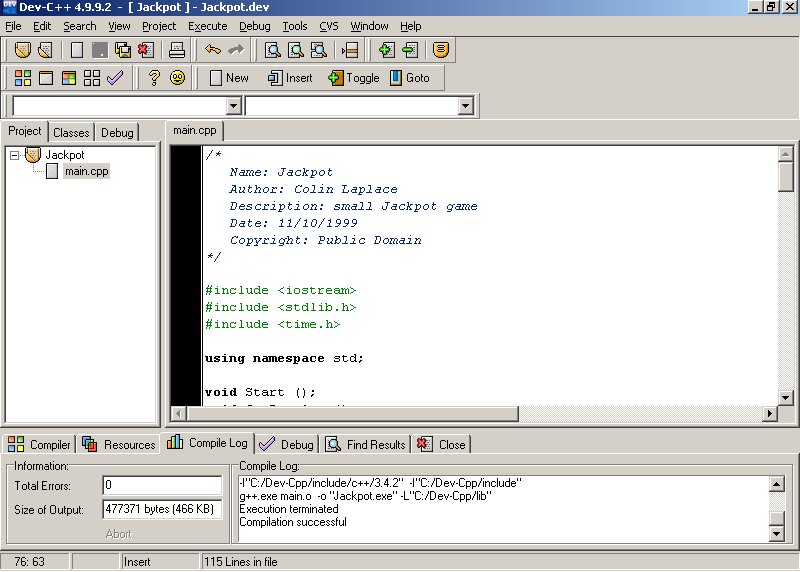JavaScript seems to be disabled in your browser. JavaScript seems to be disabled in your browser.Media Instruction Manual Download. Reloop mixage interface edition mapping traktor pro 2. Digital Jockey Tutorial 2: Pdo with the black chassis the Digital Jockey 2 also forms an optical unit with Native Instruments Traktor which is already included as the latest LE version.Reloop Digital Jockey 2 Presentation. Firmware Updates Firmware v3.

 -->
-->In C++, you can exit a program in these ways:
- Call the exit function.
- Call the abort function.
- Execute a return statement from
main.
If your program is reading input from standard input and you forgot to provide input via stdin. Your program contains infinite loop, which may never break. Your program contains infinite recursive function calls. May be your program is trying to process large data and it takes much time to process. Nov 10, 2009 The Dev C and Turbo c are two different IDEs (integrated development environments) for writing, compiling and executing c programs. Both are being powered by different compilers, MINGW compiler in case of DEV C and Borland's compiler in case of Turbo C. These compilers support different libraries. Geist 2 vst download torrent.
exit function
The exit function, declared in <stdlib.h>, terminates a C++ program. The value supplied as an argument to exit is returned to the operating system as the program's return code or exit code. By convention, a return code of zero means that the program completed successfully. You can use the constants EXIT_FAILURE and EXIT_SUCCESS, also defined in <stdlib.h>, to indicate success or failure of your program.
Issuing a return statement from the main function is equivalent to calling the exit function with the return value as its argument.
Dev C Running Different Program In Hindi

abort function
Dev C Running Different Program In California
The abort function, also declared in the standard include file <stdlib.h>, terminates a C++ program. The difference between exit and abort is that exit allows the C++ run-time termination processing to take place (global object destructors will be called), whereas abort terminates the program immediately. The abort function bypasses the normal destruction process for initialized global static objects. It also bypasses any special processing that was specified using the atexit function.
atexit function
Use the atexit function to specify actions that execute prior to program termination. No global static objects initialized prior to the call to atexit are destroyed prior to execution of the exit-processing function.
return statement in main
Issuing a return statement from main is functionally equivalent to calling the exit function. Consider the following example:
Dev C++ Run Program
The exit and return statements in the preceding example are functionally identical. However, C++ requires that functions that have return types other than void return a value. The return statement allows you to return a value from main.
Destruction of static objects
When you call exit or execute a return statement from main, static objects are destroyed in the reverse order of their initialization (after the call to atexit if one exists). The following example shows how such initialization and cleanup works.
Dev C++ Program Examples
Example
In the following example, the static objects sd1 and sd2 are created and initialized before entry to main. After this program terminates using the return statement, first sd2 is destroyed and then sd1. The destructor for the ShowData class closes the files associated with these static objects.
Dev C Running Different Program In Math
Another way to write this code is to declare the ShowData objects with block scope, allowing them to be destroyed when they go out of scope: